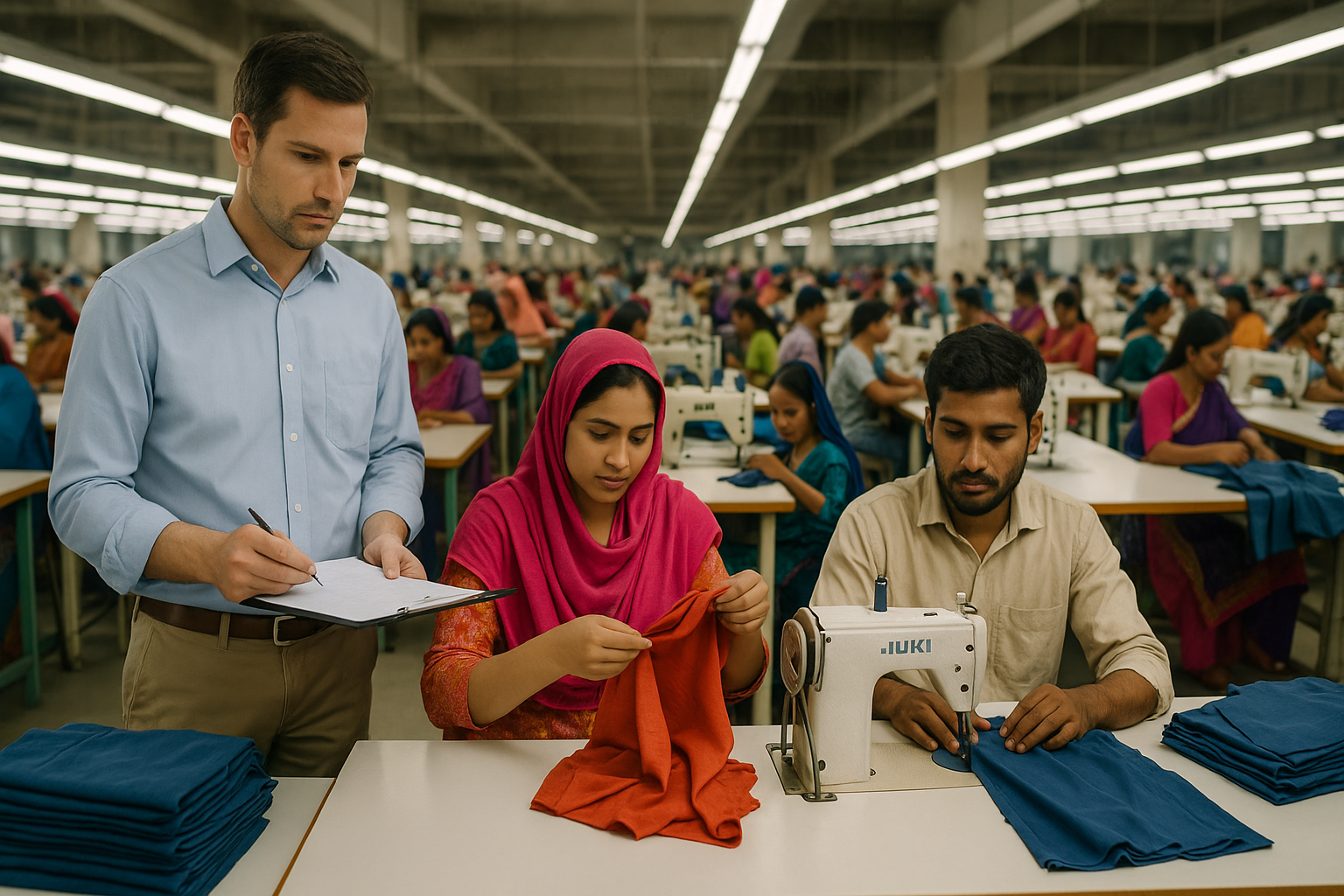In the fast-paced world of fashion, quality control is more important than ever. As international brands expand their reach into emerging markets like Bangladesh, the need for reliable standards and practices becomes critical. This is where Western garments inspectors play a vital role. But why exactly do these inspectors matter? In this blog post, we’ll explore the necessity of having Western garments inspectors present in Bangladesh factories and how they can help brands maintain their reputation while ensuring product quality.
The Bangladeshi Garment Industry: A Brief Overview
Bangladesh is one of the largest garment exporters in the world, providing a significant percentage of clothing for international brands. The country is known for its skilled workforce and competitive pricing, making it an attractive option for brands looking to produce their clothing lines at a lower cost. However, the rapid growth of the industry has raised concerns about labor practices, safety standards, and product quality.
Understanding the Role of Western Garments Inspectors
Western garments inspectors are professionals who evaluate clothing manufacturers to ensure that they meet the quality standards expected by international brands. Their presence in factories in Bangladesh can provide several advantages:
Quality Assurance: Inspectors conduct thorough checks on materials and manufacturing processes to ensure the final product meets the brand's quality expectations.
Training and Development: Inspectors can provide training to factory workers and management, improving overall operations and ensuring best practices are followed.
Building Trust: Their presence fosters trust between brands and manufacturers, leading to stronger partnerships.
Why International Brands Should Prioritize Inspector Presence
1. Maintaining Brand Reputation
For international brands, maintaining a positive reputation is crucial. In today's digital age, news travels fast, and any negative publicity regarding poor working conditions or subpar quality can severely damage a brand's image. By employing Western inspectors, brands can ensure that their production processes align with their values and ethical standards.
2. Mitigating Risks
Quality issues can lead to costly recalls, legal disputes, and damage to a brand’s reputation. By having inspectors on-site, brands can mitigate these risks before they escalate. Regular inspections help identify potential problems early, allowing for corrective actions to be taken promptly.
3. Enhancing Product Quality
Western inspectors bring a wealth of knowledge and experience to the table. Their expertise in quality control can lead to improved product quality, higher customer satisfaction, and ultimately, increased sales. By ensuring that garments meet international quality standards, brands can build a loyal customer base.
4. Navigating Cultural Differences
Working in foreign markets can present challenges due to cultural differences. Western inspectors often bridge the gap between local manufacturers and international brands, facilitating better communication and understanding. This can lead to more effective collaboration and a smoother production process.
Real-Life Examples of Success
Many international brands have successfully integrated Western garments inspectors into their production processes in Bangladesh. For instance, a well-known American apparel brand implemented a strict inspection regime, resulting in a 30% reduction in defects over a year. This not only saved costs but also improved customer feedback and brand loyalty.
Tips for International Brands When Working with Inspectors
Clearly Define Expectations: Before inspections take place, brands should clearly outline their quality expectations and standards.
Maintain Open Communication: Encourage open dialogue between inspectors and factory management to foster a collaborative environment.
Follow Up on Findings: Use inspection reports to guide improvements and ensure that any issues are addressed promptly.
Invest in Training: Consider providing training sessions for factory staff, led by inspectors, to enhance their skills and knowledge.
In conclusion, the presence of Western garments inspectors in Bangladesh factories is vital for international brands looking to ensure quality, maintain their reputation, and navigate the complexities of the garment industry. By prioritizing quality assurance and compliance with international standards, brands can not only protect their image but also foster long-term partnerships with reliable manufacturers. As the fashion industry continues to evolve, investing in robust inspection processes will be key to success in this competitive market.

